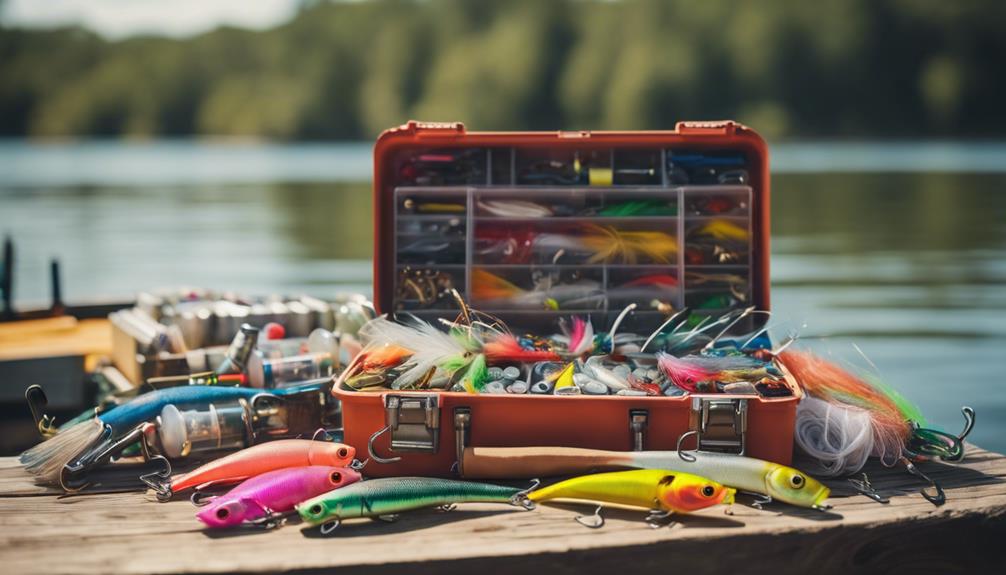Fishing is an enjoyable and relaxing pastime that many people around the world cherish. However, if you’re planning to cast your line, it’s crucial to understand the regulations surrounding fishing licenses. One common question that arises is, “What age do you require a fishing license?” This blog post will delve into the specifics of fishing licenses, including age requirements, regional differences, and the importance of obtaining one. Whether you’re a seasoned angler or a beginner, knowing the ins and outs of fishing licenses can enhance your fishing experience.
Understanding Fishing Licenses
Fishing licenses are permits issued by government authorities that allow individuals to fish in specific waters, ensuring the sustainability of fish populations and the overall health of aquatic ecosystems. The regulations governing fishing licenses vary by state, province, or country, and they are designed to promote responsible fishing practices. A fishing license typically outlines the types of fish you are allowed to catch, the fishing methods permitted, and the designated fishing areas.
Legal Age Requirements for Fishing Licenses
The age at which you are required to obtain a fishing license can vary widely depending on where you live. In many regions, children under a certain age, often 16 or 18, are allowed to fish without a license if they are accompanied by a licensed adult. Some states offer special youth licenses at a reduced cost or even for free to encourage young anglers to participate in fishing activities. Therefore, it is crucial to check the specific regulations for your area to determine the exact age requirements.
Fishing License Exceptions for Youth
In several states, there are exceptions that allow young anglers to fish without a license. For instance, many jurisdictions permit children under the age of 16 to fish freely as long as they are with a licensed adult. This initiative aims to promote family bonding and introduce children to the joys of fishing. Additionally, some regions hold free fishing days where anyone can fish without a license, regardless of age. These events can be a great opportunity for families to enjoy outdoor activities together while learning about fishing regulations.
The Importance of Obtaining a Fishing License
Obtaining a fishing license is not just a legal requirement; it also plays a vital role in the conservation of aquatic ecosystems. Fishing licenses fund essential programs aimed at preserving fish habitats, restoring depleted fish populations, and promoting sustainable fishing practices. By purchasing a fishing license, you contribute to these conservation efforts, ensuring that future generations can enjoy fishing as well. Furthermore, having a fishing license means you are aware of and adhering to the local fishing regulations, which helps avoid penalties and contributes to a responsible fishing culture.
How to Obtain a Fishing License
Obtaining a fishing license is a straightforward process that usually involves filling out an application form, providing identification, and paying a fee. Most states offer online applications, making it convenient to acquire a fishing license from the comfort of your home. Some regions also allow you to purchase licenses at local sporting goods stores or government offices. When applying, be sure to check if you need to provide proof of age or residency, as these factors can influence your eligibility and fees.
The Cost of Fishing Licenses
The cost of fishing licenses can vary significantly based on factors such as your age, residency status, and the duration of the license. For example, youth licenses are often less expensive or even free, while adult licenses may have a higher fee. Additionally, some states offer annual, seasonal, or multi-year licenses, allowing anglers to choose the option that best fits their fishing habits. It’s essential to consider these factors when budgeting for your fishing activities and ensure that you are compliant with local regulations.
Fishing License Regulations by Region
Fishing license regulations can differ greatly depending on where you are located. For instance, some states may require licenses for both freshwater and saltwater fishing, while others might have different rules for each type. Additionally, specific regions may have unique regulations concerning catch limits, fishing seasons, and types of bait allowed. Therefore, it’s important to familiarize yourself with the local fishing laws and regulations in your area before heading out. This knowledge will not only help you stay compliant but also enhance your overall fishing experience.
Final Thoughts on Fishing Licenses and Age Requirements
Understanding the age requirements for obtaining a fishing license is crucial for anyone looking to enjoy this rewarding hobby. By knowing the regulations in your area, you can ensure that you and your family have a fun and legal fishing experience. Remember, fishing licenses play an essential role in conservation efforts, so obtaining one is a responsible choice that benefits everyone. Whether you’re a young angler just starting out or an experienced fisherman, being informed about fishing licenses will help you make the most of your time on the water.
In conclusion, the question “What age do you require a fishing license?” varies based on local regulations, but being informed about these requirements is essential for any angler. Happy fishing!
